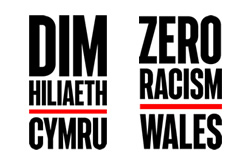Wales tops the UK in vital support to help adopted children understand their life stories, new resea
Wales tops UK nations when it comes to helping adopted children understand the early part of their lives, thanks to government prioritisation of this work since 2019. Elsewhere in the UK, children’s sense of security and identity, and their later mental wellbeing in teenage years and adulthood, are being put at risk because of a failure of ‘life story’ support, new research from Adoption UK reveals.
For many adopted people, trauma experienced before they were adopted, along with the loss of identity involved in being separated from their birth family, has lifelong implications. So-called ‘life story work’ involves helping an adopted child understand their own history and the reasons why they were adopted.
Adoption experts and psychologists widely recognise the vital importance of understanding your early history, as part of shaping a healthy sense of identity. Methods used in life story work can include activities such as play and counselling, and using materials such as life story books, which explain a child’s early story in an age-appropriate way, and ‘later life letters’ that are written for children to read when they become older.
72% of UK adoptive parents said they were happy with the quality of the life story materials they received, a figure that has barely changed in 5 years. In Wales, this figure was 86% - and it represents an increase of 30% compared to 5 years ago.
The number of families receiving life story materials soon after adopting was also higher in Wales, giving adoptive parents in Wales a head start in supporting their children.
Ann Bell, Wales Director for Adoption UK, said: “Life story materials are a vital way to help adopted children understand their background and why they were adopted. Alongside arrangements to maintain birth family links, where it is safe to do so, these materials can play a crucial role in creating a clearer sense of identity, and strong foundations for teenage years and later life. Bold action by the Welsh government shows that proper investment in life story work reaps rewards. Governments across the UK should quickly follow suit.”
The figures come from Adoption UK’s fifth annual Adoption Barometer report, the most comprehensive stocktake of adoption in the UK. It surveyed nearly 3,000 adoptive families, prospective adopters and adopted people over 18, 150 of whom live in Wales. The report offers a rich picture of the impact of adoption policy and practice in the lives of adopted people and adopters across the UK.
Director of NAS, Suzanne Griffiths, said:
“The AUK Barometer report once again paints a positive picture of adoption in Wales as well as identifying where further improvement is needed.
“We are proud to see Wales leading the way in helping adopted children understand the early part of their lives.
“Life journey work supports our focus on understanding identity as an adopted person, and is aimed at all those involved in adoption, including social workers and families. It hugely encouraging to hear the vast majority of adoptive parents in Wales are now happy with the quality of the life story materials they receive, compared to five years ago.
“Last year, we announced the introduction of the Adoption Support Commitment, the first of its kind in the UK, ensuring adopters in Wales have support during every step of their journey. NAS will continue to work with adoptive parents, children, and young people to ensure all those involved in the adoption process receive the support they need.”
Helen Cruthers, a Psychotherapist in Adoption UK’s Psychology and Therapy Hub (PATH), who has worked with families for 30 years and specialised in the adoption and fostering field for the past 15, said: “I see first-hand the difference that life story work makes – both the good that comes from doing it well, and the problems that come from a lack of it, especially in the teenage years and in later life.
“One of the saddest things is when kids who don’t have a full and clear and full explanation of their early life and their adoption do what vulnerable kids often do: blame themselves, or think there must have been something wrong with them. When you think in those terms, you can see why it matters so much to explain their early life to them, and why the investment Wales has made in this area is so incredibly valuable.”
Sophia (not her real name), an adoptive parent, said: “My husband and I adopted older siblings, aged six and four at the time of placement who, like all care experienced children, have a unique and complex life story. Their social worker worked proactively with us in preparing their life story books, including sharing drafts. This was really important to ensure we felt comfortable in using the material with the children and building on the narrative as they grow up.
“The books have really helped us to have regular and honest conversations as a family. The children are becoming more confident in their identity. Critically, I think the materials, and how we use them, have really established safe and trusting relationships to talk openly, without shame.”
Read the full report: adoptionuk.org/the-adoption-barometer
 © Copyright The National Adoption Service, 2024.
© Copyright The National Adoption Service, 2024.

